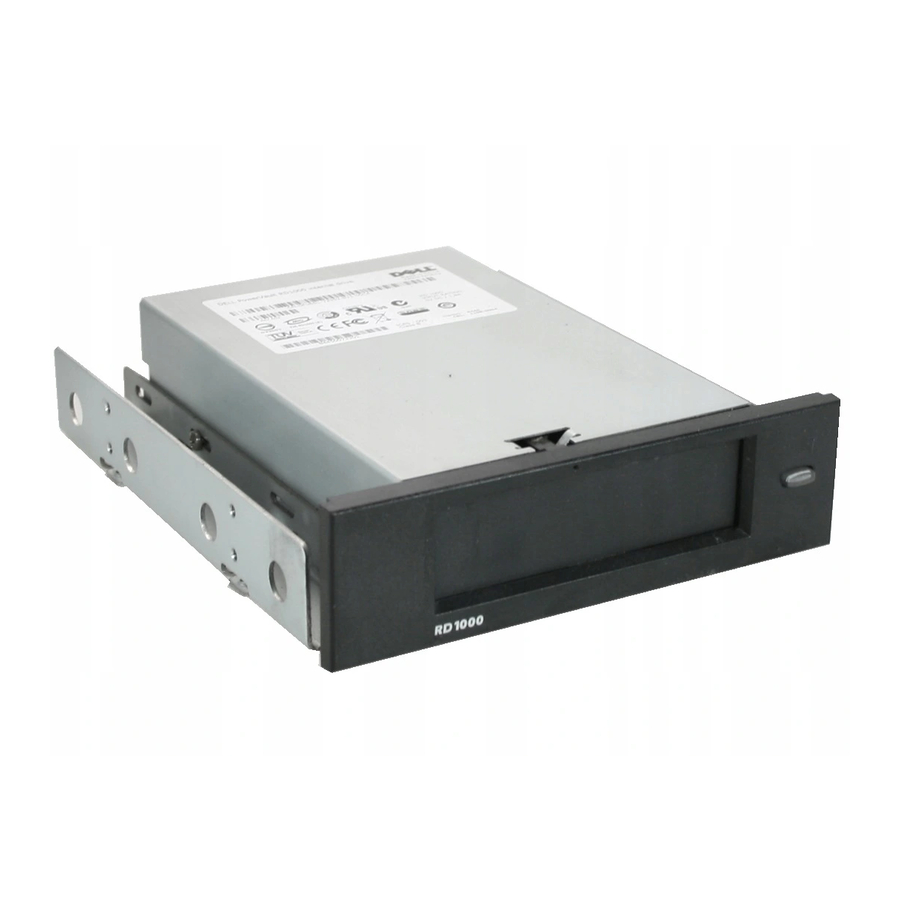- ページ 4
ストレージ Dell RD1000 - PowerVault - 80 GB RDX DriveのPDF 補足マニュアルをオンラインで閲覧またはダウンロードできます。Dell RD1000 - PowerVault - 80 GB RDX Drive 8 ページ。 Usb 3.0 performance considerations

Performance Considerations
Optimizing the PowerVault RD1000 backup solution to provide the best data transfer speeds and
performance is a key focus for many system administrators. Now with the availability of the PowerVault
RD1000 USB 3.0 the key variable to consider for achieving the best throughput with the RD1000 solution
is implementing an end-to-end USB 3.0 solution.
The PowerVault RD1000 USB 3.0 comes complete with the RD1000 dock and the USB 3.0 interface cable,
both of which have been designed to meet the USB 3.0 specification. In order to get a complete USB 3.0
solution, the host system must also be capable of supporting USB 3.0. Most servers have USB 2.0
connections, so in order to realize the performance increase; the host server will need to install a USB
3.0 host bus adapter. By attaching the RD1000 USB 3.0 to a host server which only has USB 2.0 or older,
will limit the performance of the RD1000 significantly but will still provide a increase in performance as
compared to USB 2.0 to USB 2.0 connection .
USB 3.0 Performance Improvements over USB 2.0
The PowerVault RD1000 USB 3.0 has been put through Dell's rigorous performance testing suite which
measures the read and write performance across multiple different RD1000 configurations. These
performance measurements were compiled and are presented in figures 1 and 2 below to show the
benefits of the RD1000 USB 3.0 over the USB 2.0 version.
Multiple data sets were used; however, the primary data set consisted of 10 GB or randomly generated
data. There were 6,169 files ranging in size from 6 KB to 4 MB which were distributed in nested folder
structure of 157 folders. All testing was performed using the data protection software which is included
with the PowerVault RD1000, Symantec BackupExec 2010 QuickStart.
Backup and restores were performed to and from multiple RD1000 USB 2.0 and USB 3.0 docks with
varying combinations of USB 2.0 and USB 3.0 cables and hosts. Averages were then taken across the
various performance tests with each RD1000. Figure 1 shows the results of the write performance on
the RD1000. Three configurations were tested:
1) RD1000 USB 3.0 end-to –end solution,
2) RD1000 USB 3.0 with a USB 2.0 host,
3) RD1000 USB 2.0 end-to-end solution.
